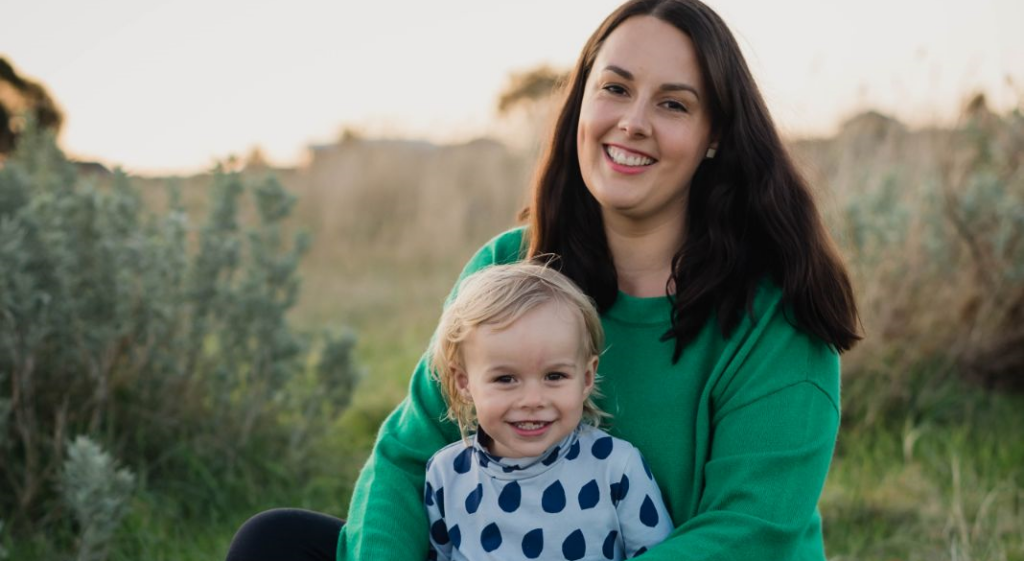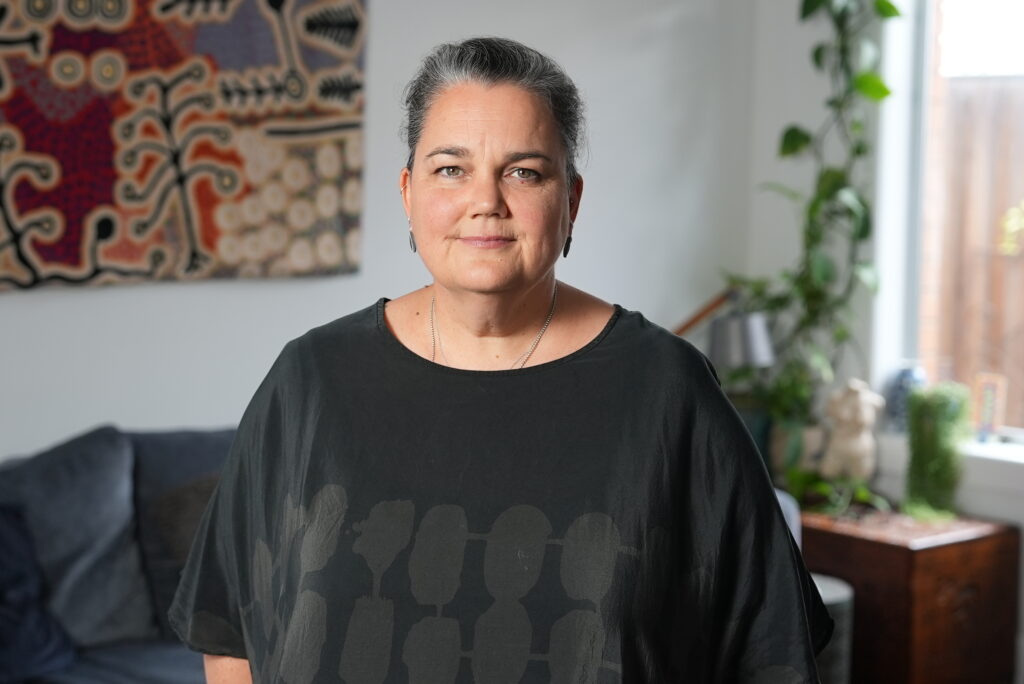Having a baby can be one of the most joyful, fulfilling experiences of a person’s life – but it can also be incredibly isolating.
For Claire Dicarlo, loneliness began as soon as she fell pregnant and became worse after giving birth when she felt a lot of her relationships with her friends and her family seemed to change all of a sudden.
“I expected my day-to-day would change, but I didn’t really expect the kind of emotional identity shifts that would happen, and all of the relationship changes that would come along with that as well,” Dicarlo said.
“Suddenly, all your priorities are different. Everything you care about is different. You just feel really changed, but the world around you is kind of going on the same.”

Loneliness – which affects more than half of Australians, according to the latest Medibank Loneliness Population Index – is an all-too-common experience for new parents.
Julie Borninkhof, the CEO of Perinatal Anxiety & Depression Australia (PANDA), knows this well. Every day, she listens to the stories of new parents, who call the PANDA hotline seeking help to adjust to their new lives.
“We know from our callers there’s this kind of displacement that comes from having a baby,” Borninkhof told Women’s Agenda.
“It starts during pregnancy, when people feel disconnected from their friend groups, perhaps, who may not be parents themselves. And then as they become new parents, there are these forced constructs over what parenting looks like, and how you connect into that.
“And for lots of people, we know that they don’t necessarily connect with the mother’s groups they’re forced into, they don’t feel part of their social community because their circumstances have changed, and their focus is on this new little bub.”
Loneliness: a psychological state
A major life event – like having a baby – can spur on feelings of loneliness, Medibank’s research found. In fact, those who currently or recently experienced a significant life event are significantly more likely to score highly on the UCLA loneliness scale (70 per cent) than those who haven’t (30 per cent).
And when combined with mental health conditions like perinatal anxiety and/or depression – conditions that one in five new parents suffer from, according to PANDA – it can have detrimental health effects.
What’s more, it can make new parents pull back from their social groups, families and friends even more so, exacerbating their isolation, fuelling their feelings of loneliness. The Medibank Loneliness Population Index also found that growing apart from friends was the single biggest trigger of loneliness (53 per cent) among Australians.
“When we don’t feel well, and we don’t feel healthy or feel less than, we withdraw from those spaces,” Borninkhof said.
“Loneliness can have such an impact on people’s psychological well-being and their learning and modelling of how to be parents at this time.”

Many mums and dads end up feeling more disconnected from their friends and their social connections as parents than they felt before having children. But Borninkhof said experiences of loneliness goes beyond having a lack of people around you.
“Loneliness is psychological state,” Borninkhof said.
“You can have people wrapping around you, you can have your partner sitting next to you on the couch. But if you feel that what you’re doing is not worthwhile, if you’re not connecting with the new identity of being a parent, then you can feel really lonely from the connections you used to have psychologically.”
This is a relatable experience for Dicarlo, who was 36 when she had her son in 2021. Most of her friends had already gone through the “new mum” stage, and she felt further away from her friends than she had ever felt before.
“There was just no way they could understand what I was experiencing, just as I hadn’t understood what my friends were going through years earlier,” Dicarlo said.
Dicarlo tried her best to pull herself out, trying to make friends through mother’s groups and other social settings with new mums. But it was never the same.
“I felt like, like, although I had people around me that I could talk to about motherhood and be with, I didn’t have people that I could be fully honest with and fully myself with.”
The lifetime value of social connection for new parents
It took a long time, but Dicarlo eventually realised that she never really lost any of her friendships. What she came to learn, as she processed her new life as a mother, is that her loved ones had been there all along – she just needed to find the strength to reach out.
To combat loneliness, Borninkhof from PANDA said the conversation must be normalised for parents, so their experiences can be validated.
“We don’t talk enough about social connection and psychological connection; we don’t normalise it enough for people,” Borninkhof said.
Whilst returning to social connections after having a baby and experiencing loneliness is important, Borninkhof stressed the importance of giving parents the control and agency as to how they ease their way back.
“We don’t make it ok for people to disconnect from people around them at a time when they feel overwhelmed. We quite often say ‘go and see your friends’ as a way of getting through it,” she said.
“And I think that in not giving people that kind of power to self-control, when they do and don’t engage with their social supports, then they just pull back altogether.
Borninkhof’s advice, for new parents, is to take small steps.
“Quite often we over-jump, when we’re jumping back in. I think if you’ve come through a tough period… try and find people who you know will understand,” Borninkhof said.
“And don’t feel that you have to jump into an overwhelming situation to bring it all back, because you’re likely to be more tired, you’re likely to be more overwhelmed.
“If it feels wrong to you, and the isolation and loneliness is something that is not positive, don’t feel afraid to get that support because that’s as valid as any person’s experience.”
To learn more about Medibank’s commitment to reducing loneliness head to We Are Lonely | Medibank.
About the research
Research commissioned by FiftyFive5 on behalf of Medibank. Research was conducted in July 2024, among a sample of (n=4,131) Australians.
If you need to speak to someone now, you can reach Beyond Blue on 1300 224 636 or call Lifeline on 13 11 14. New parents can contact the PANDA support helpline on 1300 726 306.

